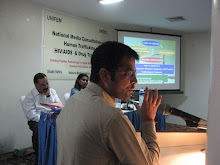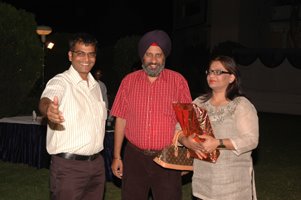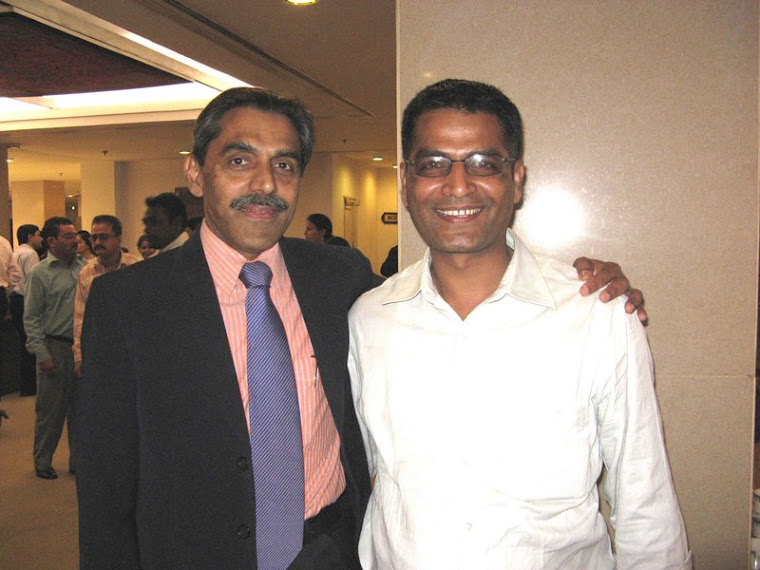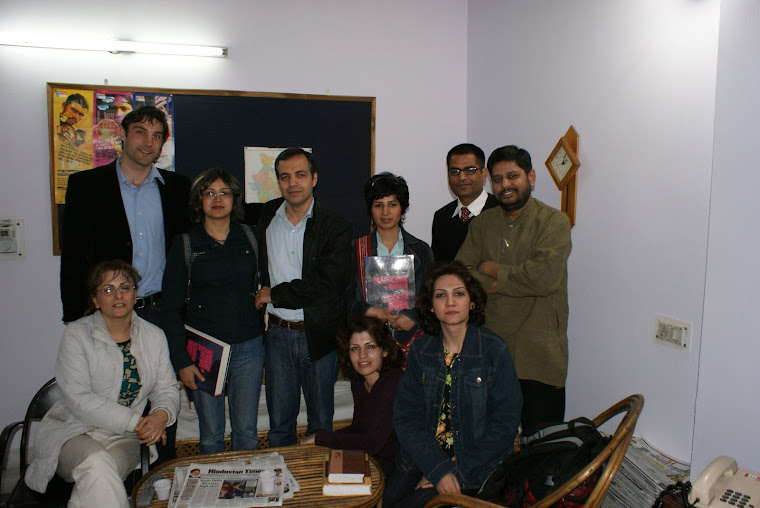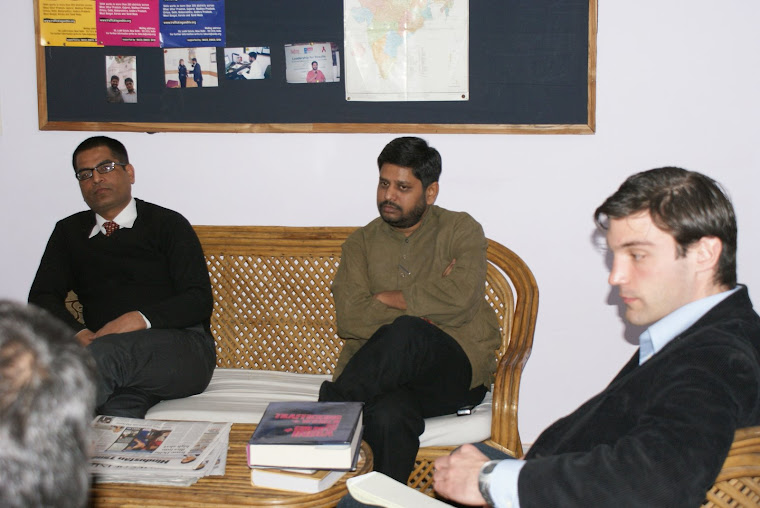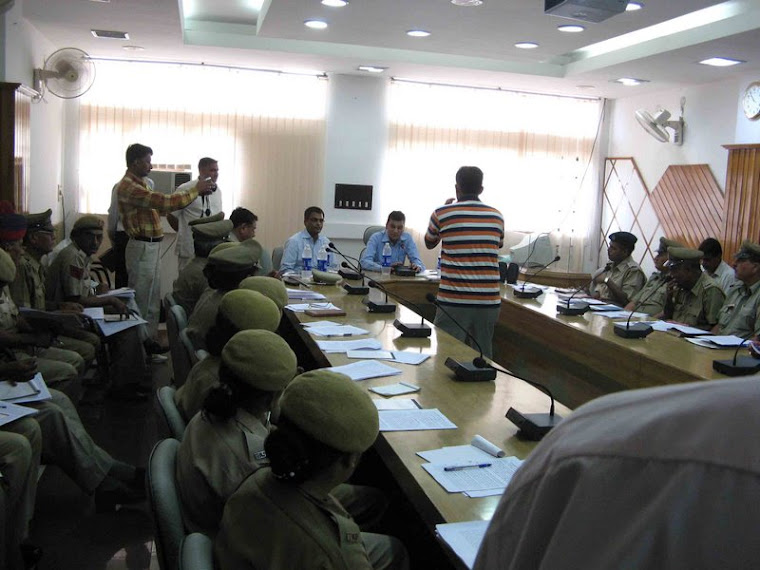Misuse of Sec. 498A of IPC and Dowry Prohibition Act
Men are redundant
In the eyes of our society, all abusers are monster men, all victims are pure and innocent sweet little women.
Misuse of Sec. 498A of IPC and Dowry Prohibition ActBy Virag Dhulia
Section 498A of the IPC:
This is the most controversial Section of the Indian Penal Code and one that receives the highest media attention these days. It reads as follows:
“498A – Husband or relative of husband of a woman subjecting her to cruelty:
Whoever, being the husband or the relative of the husband of a woman, subjects such woman to cruelty shall be punished with imprisonment for a term which may extend to three years and shall also be liable to fine.
Explanation-For the purpose of this section, “cruelty” means-
(a) Any willful conduct which is of such a nature as is likely to drive the woman to commit suicide or to cause grave injury or danger to life, limb or health whether mental or physical) of the woman; or
(b) Harassment of the woman where such harassment is with a view to coercing her or any person related to her to meet any unlawful demand for any property or valuable security or is on account of failure by her or any person related to her meet such demand.”
The Dowry Prohibition Act of 1961:
The DP Act is a related law which defines giving, abetting and taking of dowry as criminal acts, and it also prescribes many rules as to the exchange of gifts, expenditure at the time of marriage and declaration of the same to the Government.
The purported aim of the DP Act is to curb the practice of dowry and to prevent extravagant marriages.
Anti-dowry laws ineffective:
Together, IPC Section 498A and the DP Act are promoted under the label of women-protection laws.
Law enforcement officials, judiciary, general public and even feminists criticize these laws for being ineffective in curbing dowry or dowry harassment.
This factsheet highlights the magnitude and intensity of harm caused by Section 498A and the current implementation of the DP Act. The information presented below sheds light on the reasons why anti-dowry laws are ineffective.
Number of cases filed:
Case Type 2005 2006 2007
498A 58319 63128 75930
DP Act 5243 4504 3204
Table No.1
Number of Persons arrested in Section 498A:
Gender 2005 2006 2007
Male 98815 105927 120745
Female 28745 31253 35667
Total 127560 137180 156412
Table No.2
Note: The total number of persons arrested under Section 498A is 421,152 in just 3 years!
Low conviction rate:
Ad-hoc studies have hinted at a very low rate of conviction – 2% or even less – under section 498A.
There are several instances where convictions by lower courts have been reversed by the Higher Judiciary.
Taking the conviction rate to be 2%, out of the 421,152 people arrested, 8423 people could not prove their innocence while 412,279 people were successful in proving their innocence.
Unfortunately, proving one’s innocence is an extremely expensive and time consuming affair, costing an individual lakhs of rupees and 4-10 years of one’s life.
Voices of reason ignored:
Numerous authorities including Her Excellency the President of India Smt. Pratibha Devisingh Patil, the Supreme Court of India, Chief Justice of India Shri K G Balakrishan, various High Courts, eminent lawyers, and several NGOs under the aegis of the Save Indian Family movement have raised concerns over the misuse of Section 498A and the arrest of innocent people under false cases filed by greedy, disgruntled women.
So far, no measures have been taken to curb the arrests of innocent citizens or to prevent misuse of the law.
Constitutional and Human Rights violated:
IPC Section 498A and DP Act consider the accused as guilty until proven innocent, and under these laws, the accused are punished even before investigation or trial.
The criminal justice system, which has been thoroughly “sensitized” by radical feminists, is jeopardizing the life and liberty of everyone in the accused husband’s family (including minor children, pregnant sisters and senior citizens) just to satisfy the greed and ego of one ‘woman’ – the wife/daughter-in-law.
These laws violate a citizen’s basic right to life and liberty, right to due process, and right to be presumed innocent until proven guilty.
The Paradox:
Radical feminists vehemently reject all proposals to amend Section 498A claiming that its enactment was the result of years of tireless campaigning to provide protection to the married woman.
Radical feminists ignore the fact that over 123,000 innocent women (mothers and sisters of men who were implicated in 498A cases) were arrested under Section 498A over a span of just 4 years (2004 – 2007) without evidence or investigation.
Radical feminists ignore the fact that for every woman who files a false case under Section 498A and DP Act, at least TWO women in the husband’s family suffer unnecessary arrest and legal harassment.
Radical feminists ignore the fact that due to a spate of false cases, timely justice is denied to genuinely abused women.
This is the most deplorable fact about Section 498A – the law claiming to protect women is their worst abuser.
DP Act not implemented, only misused:
The DP Act came into effect 48 years ago, and yet women’s rights activists claim that the problem of dowry is only getting worse every day.
Basing their claim on the rising number of dowry cases, they constantly urge the Government to introduce more stringent provisions against the husband and his family.
The current DP Act is sufficient to contain the dowry menace if it is implemented in its true spirit i.e. penalizing BOTH dowry givers AND dowry takers.
To date, not a single woman or her family has been punished for either “giving dowry” or “admitting to giving dowry”, whereas scores of husbands and their relatives have been arrested upon mere allegations every day.
Section 498A and DP Act destroy families:
Once a case if filed under IPC Section 498A and DP Act, the marriage invariably ends in divorce.
Section 498A and DP Act have not only converted marriage into a crime, but also serve as weapons that break marriages and destroy families.
Section 498A and DP Act are two examples which illustrate the success of the radical feminist campaign of hatred against men and disdain for the family.
Saturday, May 14, 2011
Friday, April 15, 2011
Deaf seek level field on disability Mar 19, 2011, 03.52am ISTNEW DELHI: The hearing impaired on Friday moved the Supreme Court seeking parity with the blind and other physically challenged people in government service in promotions and allowance entitlements. A bench comprising Chief Justice S H Kapadia and Justices K S Radhakrishnan and Swatanter Kumar wanted petitioners — "Deaf Employees Welfare Association" and " Railway Employees Association of Deaf and Dumb" — to make a representation to the ministry of social justice and empowerment about their grievance. However, solicitor general Gopal Subramaniam, taking note of the complaint of discrimination by the hearing impaired government employees, agreed to entrust the concerned department to examine the issues raised by the petitioner through advocate Kamal Kumar Pandey. The bench asked the two associations to give the SG a copy of their petition and wanted the ministry concerned to report back to the court with its stand in four weeks. Quoting Article 41 of the Constitution obliging governments to provide effective mechanism and public assistance to disabled people, the petitioners said prior to 1995, there was no specific legislation to address the rights and needs of the disabled people. The governments confined their efforts to providing medical rehabilitation and removal of the stigma limited to visible disabilities like blindness, orthopaedically handicapped and leprosy, they said. However, the concept of disability and the social attitude towards it has undergone a radical change since India signed the "Proclamation for Disabled, Full Participation and Equality for Asia and Pacific Region" in 1992. The Centre framed a national policy for disabled in 1993, which was revised in 2005, and provided 3% reservation to blind, hearing impaired and locomotory disabled people in government jobs. However, the approach of the central and state governments underwent very little change and they have been discriminating against the the deaf employees by not providing them travelling allowance, on-job training and promotions on a par with the blind and orthopaedically handicapped.
Writ petition (civil) 107/2011
ITEM NO.38 COURT NO.1 SECTION X
S U P R E M E C O U R T O F I N D I A
RECORD OF PROCEEDINGS
WRIT PETITION (CIVIL) NO.107 OF 2011
DEAF EMPLOYEES WELF.ASSOCIATION & ANR Petitioner(s)
VERSUS
UNION OF INDIA & ORS. Respondent(s)
Date: 15/04/2011 This Petition was called on for hearing today.
CORAM :
HON'BLE THE CHIEF JUSTICE
HON'BLE MR. JUSTICE K.S. PANICKER RADHAKRISHNAN
HON'BLE MR. JUSTICE SWATANTER KUMAR
For Petitioner(s) Mr. Kamal Kumar Pandey,Adv.
Mr. Sukumar,Adv.
Mr. Abhisth Kumar,Adv.
For Respondent(s) Mr. Gopal Subramaniam,SG.
UPON hearing counsel the Court made the following
O R D E R
Place the writ petition after the ensuing
summer vacation.
[ Alka Dudeja ] [ Madhu Saxena ]
A.R.-cum-P.S. Assistant Registrar
S U P R E M E C O U R T O F I N D I A
RECORD OF PROCEEDINGS
WRIT PETITION (CIVIL) NO.107 OF 2011
DEAF EMPLOYEES WELF.ASSOCIATION & ANR Petitioner(s)
VERSUS
UNION OF INDIA & ORS. Respondent(s)
Date: 15/04/2011 This Petition was called on for hearing today.
CORAM :
HON'BLE THE CHIEF JUSTICE
HON'BLE MR. JUSTICE K.S. PANICKER RADHAKRISHNAN
HON'BLE MR. JUSTICE SWATANTER KUMAR
For Petitioner(s) Mr. Kamal Kumar Pandey,Adv.
Mr. Sukumar,Adv.
Mr. Abhisth Kumar,Adv.
For Respondent(s) Mr. Gopal Subramaniam,SG.
UPON hearing counsel the Court made the following
O R D E R
Place the writ petition after the ensuing
summer vacation.
[ Alka Dudeja ] [ Madhu Saxena ]
A.R.-cum-P.S. Assistant Registrar
Subscribe to:
Posts (Atom)
